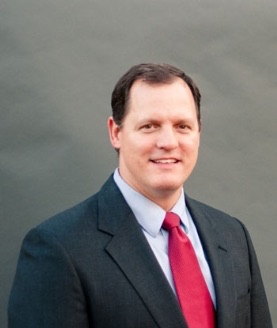[Dr. Williams] We are now eight months from a bilateral decompression of the greater occipital nerve with resection of the lesser and third Occipital Nerves for severe post-traumatic headaches following a whiplash injury with a concussion. Can you tell me a little bit about when your headaches began and how long ago was this? Describe your headaches and how you tried to fix them before you got here.
[Patient] So I had headaches for about three to four years. They started out gradually and just continued. It was something that went from constant to sometimes, and then every so often migraines would set in. They would be terrible and last for hours.
[Dr. Williams] And where were your headaches?
[Patient] They were frontal, they would be in the back, I mean sometimes it would feel like a rubber band was wrapped around my head. It would kind of change, but mostly in the front of my head.
[Dr. Williams] And when you say that they were severe, give me an idea. How severe: was it a bad headache, take a Tylenol, get better? Or worse?
[Patient] It would be worse. It got to a point especially with the headaches and migraines where I felt like I saw something. I would have to close my eyes, turn the lights off. No Ibuprofen would work, I would end up just lying there.
[Dr. Williams] Did you miss work? Did you miss life? Did you miss some things?
[Patient] Oh yeah, I was already so young when it started to affect me – I was in my early twenties. I would miss out on going out with my friends, I was missing having the energy to do anything because I was so drained from having the headaches and just feeling so tired and fatigued from them. I wasn’t living a normal twenty-one, twenty-two, or twenty-three-year-old life at all.
[Dr. Williams] So these weren’t your typical, simple headaches, these were devastating headaches. So you were referred to one of our regional experts, Dr. Kevin Crutchfield at Sinai Hospital for the concussion protocols and you had gone through a series of treatments with him and how did that go? That helped diagnose the problem, but it didn’t fully treat the problem. And then you were referred to our office for potential surgical management. We operated on you about eight months ago and how to do you feel now? Now that it’s been eight months?
[Patient] I feel fantastic. Like I said earlier, I feel like it was life changing. It was something to be honest I was a bit skeptical to go in because it was a surgery you don’t really hear much about unless you kind of google it, and really when you do, you don’t get that many testimonials as you’d like but I listened to the ones Dr. Williams had here and just with talking with him made me feel really confident going in. It’s been amazing, there really hasn't been any headaches, I haven’t had a migraine in about four or five months. Post surgery it was a little interesting, you know tingling scars, and just tingling in general with the nerves, and some headaches here and there, waking up a little foggy, but after that, it would go away and now I don’t even notice it. It’s like I’m realizing there were more symptoms that I had before surgery than I have now. I don’t get bothered really ever with any headaches. Unless it’s like allergy related or something.
[Dr. Williams] So if you had to put a scale 0% better or 100% better, what would you classify that as?
[Patient] I’d really say a 100% better. I mean it.
[Dr. Williams] Any other thoughts or ideas that you would like to share for people watching these videos who are in the right patient population?
[Patient] Give it time, do your research, you have to feel absolutely comfortable going into it. I knew that this was the right step for me because the treatments that I had gone through helped but it wasn’t a cure all. This was something that I was willing to go forward with and I’m happy that I did. It’s definitely taken time, almost eight months to feel the full effects but I know that if I hadn’t gone forward with this surgery, I wouldn’t have been able to live the life and routine that I used to have before my accident. I’m working out all the time like I used to, I’m able to drive at night without having issues with lights. Just being able to go out without having headaches and Ibuprofen every day and every four hours has been amazing and if it’s something you could change and help your lifestyle get to where you want to be even if it improves it just a little bit, I definitely think it’s something worth doing.
[Dr. Williams] What about the medication? You were on a number of medications prior to surgery. Are you still taking those medications or were you able to stop those?
[Patient] I was able to stop all medications. That has been wonderful. That was one of the reasons surgery was a huge proponent for me and why I was interested because it gave the possibility of not taking medications afterward and it was something that I was willing to try. Off everything!
[Dr. Williams] Alright, thank you very much!

